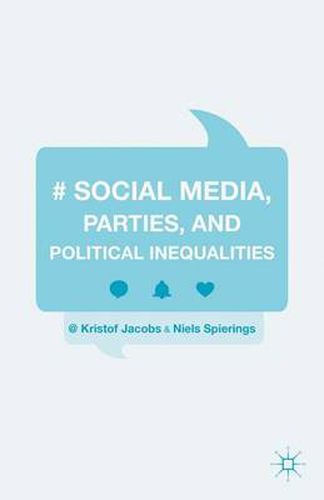Readings Newsletter
Become a Readings Member to make your shopping experience even easier.
Sign in or sign up for free!
You’re not far away from qualifying for FREE standard shipping within Australia
You’ve qualified for FREE standard shipping within Australia
The cart is loading…






This title is printed to order. This book may have been self-published. If so, we cannot guarantee the quality of the content. In the main most books will have gone through the editing process however some may not. We therefore suggest that you be aware of this before ordering this book. If in doubt check either the author or publisher’s details as we are unable to accept any returns unless they are faulty. Please contact us if you have any questions.
This book examines how social media have transformed politics in established democracies. Specifically, the authors examine the influence of the unique qualities of social media on the power balance between and within parties. They present a general theory as well as an in-depth case study of the Netherlands and compare it to the US and European democracies. The authors show how and why social media’s introduction leads to equalization for some and normalization for others. Additional to national politics, Jacobs and Spierings investigate often-overlooked topics such as local and European politics and the impact on women and ethnic minorities.
$9.00 standard shipping within Australia
FREE standard shipping within Australia for orders over $100.00
Express & International shipping calculated at checkout
This title is printed to order. This book may have been self-published. If so, we cannot guarantee the quality of the content. In the main most books will have gone through the editing process however some may not. We therefore suggest that you be aware of this before ordering this book. If in doubt check either the author or publisher’s details as we are unable to accept any returns unless they are faulty. Please contact us if you have any questions.
This book examines how social media have transformed politics in established democracies. Specifically, the authors examine the influence of the unique qualities of social media on the power balance between and within parties. They present a general theory as well as an in-depth case study of the Netherlands and compare it to the US and European democracies. The authors show how and why social media’s introduction leads to equalization for some and normalization for others. Additional to national politics, Jacobs and Spierings investigate often-overlooked topics such as local and European politics and the impact on women and ethnic minorities.